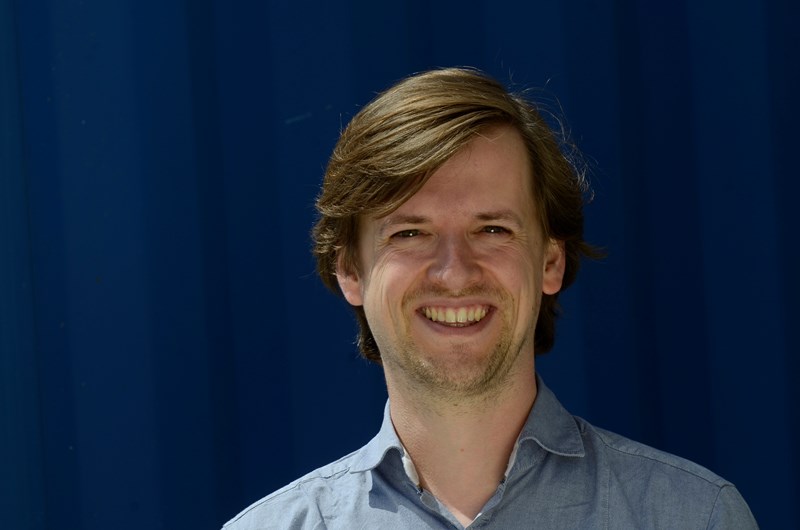Q&A with Rob Opsomer from the Ellen MacArthur Foundation
Sustainability
June 6, 2017Reading time: 3 minutes
Collaboration led by the Ellen MacArthur Foundation (EMF) is helping to increase the recovery and recycling of plastic packaging.
Collaboration led by the Ellen MacArthur Foundation (EMF) is helping to increase the recovery and recycling of plastic packaging.

We asked Rob Opsomer, who leads EMF Systemic Initiatives, about the Foundation and its New Plastics Economy Initiative, and how Amcor and others are working together to explore new technologies and system-wide solutions to rethink and redesign the future of plastics.
- What is the Ellen MacArthur Foundation working to achieve?
The Foundation was created in 2010 to accelerate the transition to a circular economy and we work across five areas: insight and analysis, business and government, education and training, systemic initiatives, and communication. We work with business, government and academia to build a framework for an economy that is restorative and regenerative by design.

- Tell us about the New Plastics Economy initiative?
Applying the principles of the circular economy, the New Plastics Economy brings together key stakeholders to rethink and redesign the future of plastics, starting with packaging. We published two successful reports at the World Economic Forum Annual meeting in Davos in 2016 and 2017, and that helped to establish the Initative as thought leader in the field.
The initiative is supported by Wendy Schmidt, as Lead Philanthropic Partner, and MAVA Foundation, Oak Foundation, and players of People’s Postcode Lottery (GB) as Philanthropic Funders. Amcor is a Core Partner alongside The Coca-Cola Company, Danone, MARS, Novamont, PepsiCo, Unilever, and Veolia.
- How does the New Plastics Economy benefit from Amcor's expertise and global reach?
As one of the world’s largest packaging companies, Amcor is an indispensable part of the Initiative’s cross-value chain group of companies and cities. Amcor experts are active in a range of collaborative pioneer projects, and, as a Core Partner of the New Plastics Economy, Amcor has a seat on the Advisory Board where it informs the direction and focus of the initiative. The company has also taken an active role in shaping the technical brief for the $2 million New Plastics Economy Innovation Prize, and will act as a judging party to select the winners.
In collaborative ‘Pioneer Projects’, Amcor is helping to explore new technologies and solutions to common challenges in a pre-competitive stage together with the key stakeholders of the plastic value chain. The Amcor led Pioneer Project ‘Barrier’ in particular aims to define what means ‘recycling-ready’ for flexible barrier packaging.
- In what way can Amcor benefit from its involvement in the New Plastics Economy?
The New Plastics Economy brings together organisations including many of world’s largest consumer goods companies. We are setting a common direction and through this Amcor can make sure its efforts to move towards a New Plastics Economy match with others’ – including many of their largest customers.
- Tell us more about EMF’s recently launched $2 million Innovation Prize?
To free our environment from plastics, we have to do more than clean up beaches or remove plastic from the ocean; we have to fundamentally rethink the way we make, use and re-use plastics so that they don’t become waste in the first place. To do this, we need better materials, clever product designs and new, circular business models. That’s why we launched the $2m New Plastics Economy Innovation Prize to find solutions that keep plastics in the economy, and out of the environment.

- What can people in our industry and more widely do to help the EMF achieve its goals?
We want all stakeholders to get involved and work together. As a first step, it is crucial that organisations along the value chain participate in the direction-setting and collaborate on projects as part of the New Plastics Economy initiative – which is what Amcor is doing. The next step for our participating organisations is, of course, to implement the initiative's recommendations internally.
www.newplasticseconomy.org | @NewPlasticsEcon
Read More
Amcor and the Innovation Prize
Amcor commitment to recycling-ready products
Amcor 2016 Sustainability Review
About the New Plastics Economy Innovation Prize
The New Plastics Economy Innovation Prize invites innovators, designers, entrepreneurs and scientists to help build a circular economy for plastics by developing new materials, redesigning formats, and rethinking delivery models to eliminate plastic packaging waste. To achieve this goal, the Foundation is running two parallel challenges:
The $1 million Circular Design Challenge invites applicants to rethink how we can get products to people without generating plastic waste. The Challenge will focus on small-format packaging items (10% of all plastic packaging) such as shampoo sachets, wrappers, straws and coffee cup lids, which are currently not recycled and often end up in the environment.
The $1 million Circular Materials Challenge seeks ways to make all plastic packaging recyclable. Around 13% of today’s packaging, such as crisp packets, food wrappers and shampoo sachets is made of layers of different materials fused together. This multi-layer construction provides important functions like keeping food fresh, but also makes the packaging difficult to recycle. The challenge therefore invites innovators to find alternative materials that could be recycled or composted.
The Prize was launched on in May by the Ellen MacArthur Foundation together with The Prince of Wales's International Sustainability Unit. The Prize is funded by Wendy Schmidt, lead philanthropic partner of the New Plastics Economy initiative. The Challenge Partners are OpenIDEO (Circular Design Challenge) and NineSigma (Circular Materials Challenge). The challenges have been scoped in close coordination with the New Plastics Economy initiative’s more than 40 participants including Core Partners Amcor, The Coca-Cola Company, Danone, MARS, Novamont, PepsiCo, Unilever, and Veolia, to ensure the challenge applicants work towards compelling solutions with the potential to shift the market.
